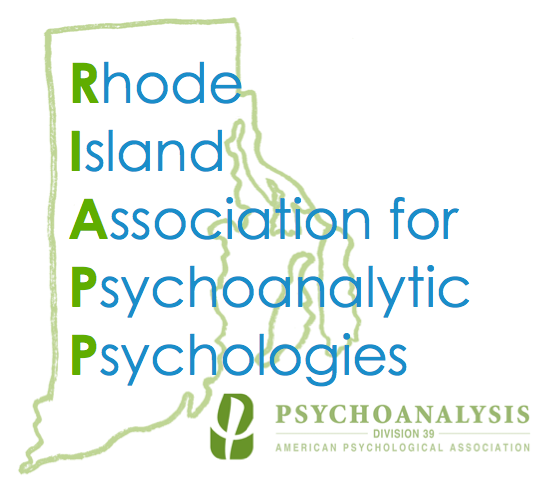The “Neurobiology of Object Relations”: Early Attachment Templates and Memory in the Neurosequential Model of Therapeutics© by Stephen Bradley, L.I.C.S.W., L.M.H.C .
Wednesday, May 7, 2025, 7:30PM - 9:00 PM
This event will be held virtually on Zoom. The link will be emailed to you the day of the event.
*Members: Annual board updates will be presented at 7pm so please join early.
This workshop will introduce participants to key concepts related to memory, the creation of associations and the development of “attachment templates” particularly during the earliest months / years in infant development. We will be looking at the role of core regulatory networks and the stress response in relation to early experiences with caregivers. There will be a particular focus on the “Triune Relationship” between Regulation, Reward and Relationship and the interweaving of key neural networks involved with each of these phenomena. The Neurosequential Model of Therapeutics (NMT©) - developed by Dr. Bruce Perry is a neurobiologically informed, developmentally sensitive approach to clinical problem solving that helps us to better understand the impact of trauma in the development of early infant and child relational templates. In addition to discussing the development of these templates we will discuss implications for treatment of “relationally sensitized” clients with specific strategies for engagement and intervention. Particular attention will be payed to “operationalizing the concepts” in practice and the relevance of early intervention. Descriptions of core concepts in practice will be grounded in case examples and pragmatic approaches to treatment.
—————————————————
1.5 CEs available through APA and NASW
—————————————————
RIAPP uses a "Pay What You Can" model in an effort to recognize the long history of marginalization of underrepresented groups, namely BIPOC individuals, within psychoanalysis. We aim to make our community and programming increasingly accessible for everyone.
For those who can afford to register at a higher rate, we urge you to do so.
Suggested rates are listed below for reference:
-Members: $10
-Non-Members: $35
-Students (Undergraduate and Graduate, no CEs): $5
Wednesday, May 7, 2025, 7:30PM - 9:00 PM
This event will be held virtually on Zoom. The link will be emailed to you the day of the event.
*Members: Annual board updates will be presented at 7pm so please join early.
This workshop will introduce participants to key concepts related to memory, the creation of associations and the development of “attachment templates” particularly during the earliest months / years in infant development. We will be looking at the role of core regulatory networks and the stress response in relation to early experiences with caregivers. There will be a particular focus on the “Triune Relationship” between Regulation, Reward and Relationship and the interweaving of key neural networks involved with each of these phenomena. The Neurosequential Model of Therapeutics (NMT©) - developed by Dr. Bruce Perry is a neurobiologically informed, developmentally sensitive approach to clinical problem solving that helps us to better understand the impact of trauma in the development of early infant and child relational templates. In addition to discussing the development of these templates we will discuss implications for treatment of “relationally sensitized” clients with specific strategies for engagement and intervention. Particular attention will be payed to “operationalizing the concepts” in practice and the relevance of early intervention. Descriptions of core concepts in practice will be grounded in case examples and pragmatic approaches to treatment.
—————————————————
1.5 CEs available through APA and NASW
—————————————————
RIAPP uses a "Pay What You Can" model in an effort to recognize the long history of marginalization of underrepresented groups, namely BIPOC individuals, within psychoanalysis. We aim to make our community and programming increasingly accessible for everyone.
For those who can afford to register at a higher rate, we urge you to do so.
Suggested rates are listed below for reference:
-Members: $10
-Non-Members: $35
-Students (Undergraduate and Graduate, no CEs): $5
Wednesday, May 7, 2025, 7:30PM - 9:00 PM
This event will be held virtually on Zoom. The link will be emailed to you the day of the event.
*Members: Annual board updates will be presented at 7pm so please join early.
This workshop will introduce participants to key concepts related to memory, the creation of associations and the development of “attachment templates” particularly during the earliest months / years in infant development. We will be looking at the role of core regulatory networks and the stress response in relation to early experiences with caregivers. There will be a particular focus on the “Triune Relationship” between Regulation, Reward and Relationship and the interweaving of key neural networks involved with each of these phenomena. The Neurosequential Model of Therapeutics (NMT©) - developed by Dr. Bruce Perry is a neurobiologically informed, developmentally sensitive approach to clinical problem solving that helps us to better understand the impact of trauma in the development of early infant and child relational templates. In addition to discussing the development of these templates we will discuss implications for treatment of “relationally sensitized” clients with specific strategies for engagement and intervention. Particular attention will be payed to “operationalizing the concepts” in practice and the relevance of early intervention. Descriptions of core concepts in practice will be grounded in case examples and pragmatic approaches to treatment.
—————————————————
1.5 CEs available through APA and NASW
—————————————————
RIAPP uses a "Pay What You Can" model in an effort to recognize the long history of marginalization of underrepresented groups, namely BIPOC individuals, within psychoanalysis. We aim to make our community and programming increasingly accessible for everyone.
For those who can afford to register at a higher rate, we urge you to do so.
Suggested rates are listed below for reference:
-Members: $10
-Non-Members: $35
-Students (Undergraduate and Graduate, no CEs): $5


